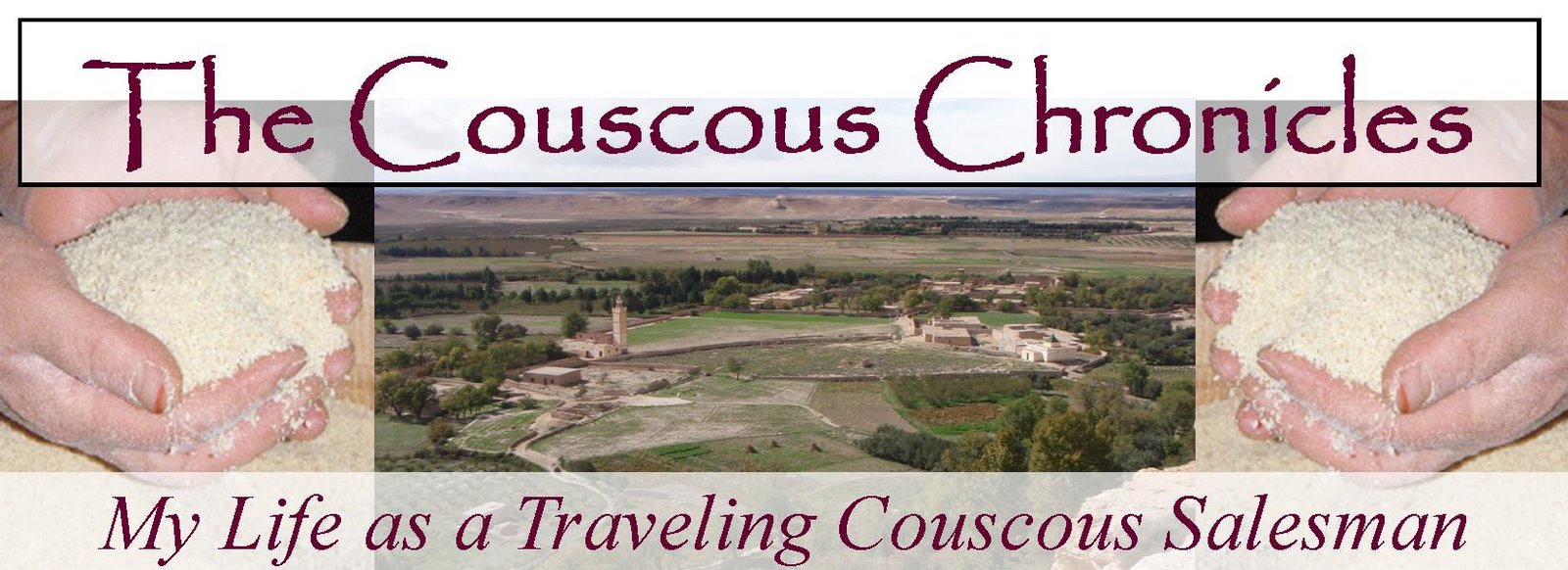I trudged up to Fes a few days later, not excited about breaking the sad news that for all of our brilliant ideas, we were unable to come up with a single good recipe for couscous desserts that could be eaten with fingers. I met the woman who had commissioned the couscous truffles in a cafe, along with another of our Fes friends, a professional food writer and recipe-inventer, who was shaking her head before I finished telling her what we'd been trying to do, and immediately said, no, couscous will never roll into a ball. The answer, she said, was to think of what couscous will act like, not what it's made from. So we couldn't just substitute couscous for flour, even though essentially, couscous is 100% flour, but we could substitute couscous into recipes calling for polenta. A quick internet search gave us lots of recipes for polenta cakes and cookies. So the challenge was back on.
I whipped up a polenta lemon cake and a batch of Italian polenta cookies, both using our whole-wheat couscous, and took them off to the public oven in the Fes medina. The oven guy had a huge wood-fire oven full of cakes, cookies, breads and whatever else the people in the neighborhood needed to bake that afternoon. I hung out and chatted with him and watched him shuffle everything around using long-poled oars so that everything was perfectly and evenly baked. In an hour of watching I didn't see anything emerge even slightly burned. When the cookies were done, he shook his head at me and told me that the next time I wanted to bake some cookies, why didn't I just come and tell him what kind I wanted, and his wife would make them for me, because clearly I was not cut out for cookie baking. The verdict: better than the couscous truffles, but they felt a little bit like I'd accidentally mixed a handful of sand into the batter, crunchy, in a way that cakes and cookies are not supposed to be. And thus the list of couscous recipes for my book dropped back down to one.
skip to main |
skip to sidebar
Followers
Blog Archive
-
▼
2010
(46)
-
▼
March
(10)
- School Bathroom Nightmare, Final Part (hopefully)
- Caramel Apple Couscous Ball Truffles, Part I
- Caramel Apple Couscous Ball Truffles, Part II
- This is some Quality Peanut Butter
- When the cows come home
- Curly ears are always better than normal ears, right?
- Kicking off Biking Season
- Cynthia Berning, Professional Olive Oil Taster
- The official Kookie Cake recipe
- The resemblance is uncanny
-
▼
March
(10)
